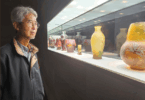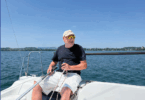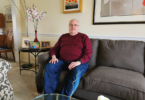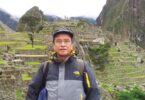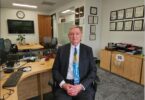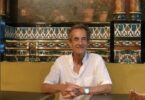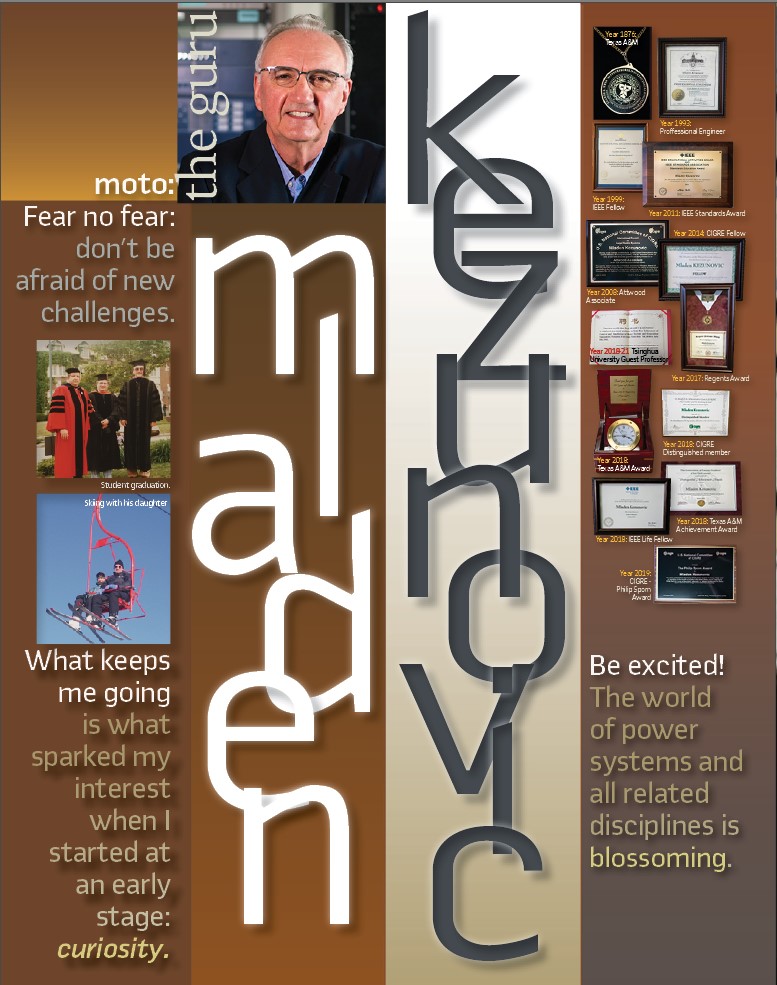
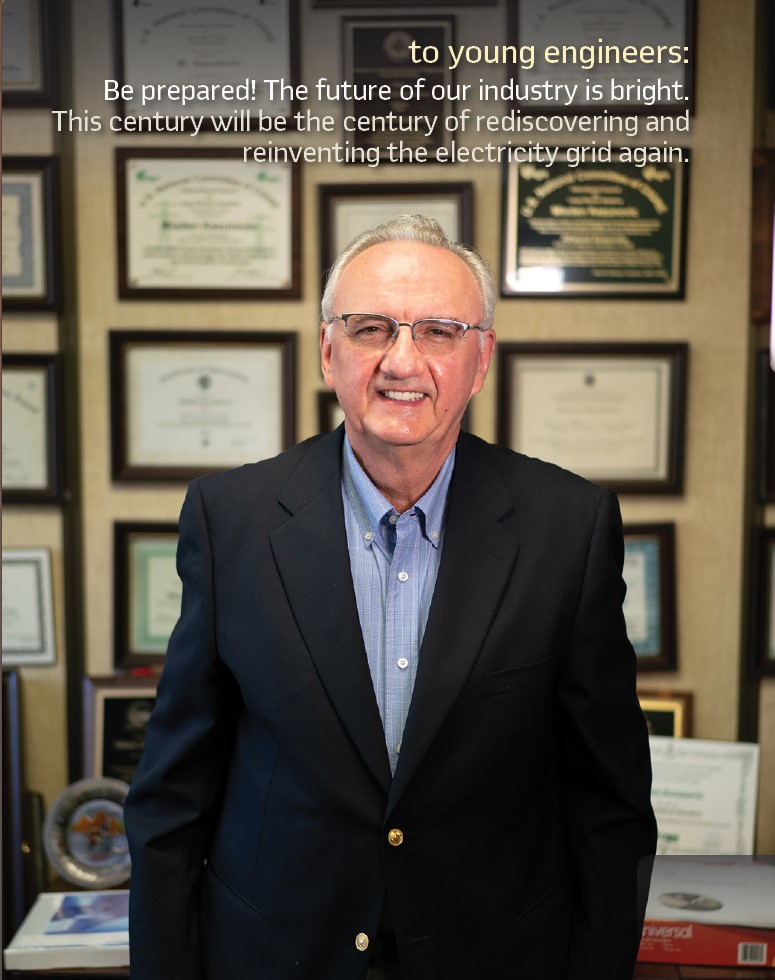
PAC World: When and where were you born?
M.K.: May 1, 1951 in Sarajevo, Bosnia and Herzegovina.
PAC World: Where did you grow up and where did you go to school?
M.K.: All my schooling, including obtaining my engineering degree, was in Sarajevo.
PAC World: Did you have any specific interests while in school?
M.K: My mother, who was a teacher, did instill the importance of learning. I guess learning in general was my strong interest since I was at the top of my class. I attended a primary/middle school and after a classical gymnasium – an institution tailored after the German educational system to prepare students for college. Math was my favorite, but I loved Geography, Russian literature and Latin as well. I was very active in all kinds of sports: soccer, skiing, table tennis, etc.
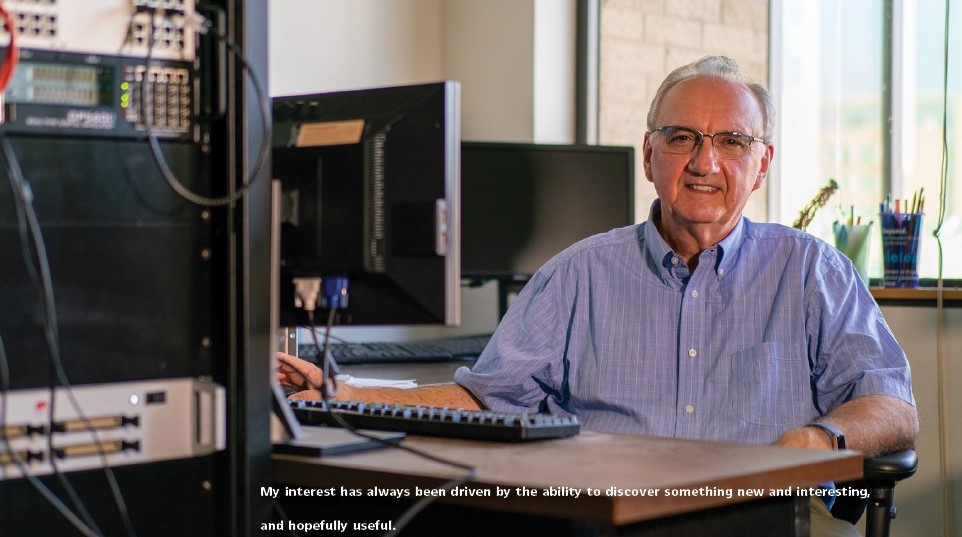
PAC World: Can you think of someone or something that influenced your decision to become an engineer?
M.K.: Not really. I did, however, learn about Nikola Tesla early on, and many young persons in the region admired him for his achievements. He was born in Smiljan, Croatia, which is only 250 miles away from Sarajevo.
PAC World: Where did you go to university and why did you choose that particular one?
M.K.: I attended the Faculty of Electrical Engineering at the University of Sarajevo. All my friends were in Sarajevo, there was no cost involved since the government required no tuition payments, I stayed with my parents for free, and my older brother attended the same program so the books could be re-used. The school was well known for its very strong program.
PAC World: Why did you study electrical engineering?
M.K.: I took an entrance exam in electrical and mechanical engineering and was admitted to both. Since I was good in math, I was confident I could do well in either. Having an older brother who studied electrical engineering was probably the deciding factor.
PAC World: Why did you decide to continue your education in the United States?
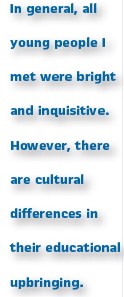
M.K.: Curiosity, and sheer luck. While I landed a desirable job after graduating in 1974, I somehow felt unfulfilled in the couple of years that followed. Despite the attraction to cultural and social roots, I felt an even stronger desire to explore the world. The interest to travel abroad stems from my high school days; going to England working in the strawberry fields for the famous Tiptree Jams Company as part of international students’ camps in Essex, and then hitchhiking around Europe with the little extra income we could save. In late 1975 I applied for a Fulbright scholarship to study in the US and was admitted starting summer of 1976. That covered my travel and offered a modest stipend. With the undivided support I received from my parents, it was a no brainer.
PAC World: Why did you select the University of Kansas?
M.K.: The United States was a huge unknown in former Yugoslavia at the time, except for cowboy movies and books about the Wild West. And now comes the funniest part: as a Fulbright scholar, you get a list of a few universities to choose from. The only name I could recognize from my earlier exposure was Kansas, hence I did not hesitate. I enjoyed my stay in Kansas a lot. People were friendly, and I was lucky to get an adviser, Prof. Dale Rummer, who was truly invested in helping me succeed.
PAC World: Did you have any other interests than learning while at the University of Kansas?
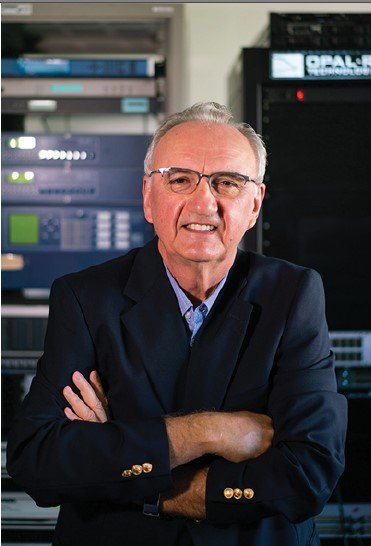
M.K.: I did, particularly in travel and cultural exploration but I did not have much time at all at the beginning. The stipend I received was for nine moths only, so I had to cram an M.Sc. Degree curriculum of 12 classes in two semesters. Taking 6 courses per semester was really tough. I did, however, complete my M.Sc. in 9 months with 4.0 GPA and was admitted to the Ph.D. program at the same university. While I had to work as a Graduate Teaching Assistant to cover my expenses at first, and still had a pretty heavy course load, I did manage to find some time to follow my favorite interests: travel, sports and the entertainment.
PAC World: What was your first job after you graduated?
M.K.: After graduating with a B.Sc. degree, I ended up taking a job of a Lab Instructor at the University of Sarajevo in the Faculty of Electrical Engineering. After I left for the USA, and before I graduated with a Ph.D. Degree in Kansas, I took a job with Westinghouse Electric in Pittsburgh working on the first all-digital substation system called WESPAC. The development was funded by EPRI, and the project manager was Stig Nilsson with whom I have a close relationship today. That job was a turning point in my life. I learned a lot from many Westinghouse experts such as Walt Elmore and my project teammates such as Eric Udren, filed my first patent on the use of modified Ethernet protocol for substation communications.
PAC World: Was there any specific reason to choose an academic career and return to the US?
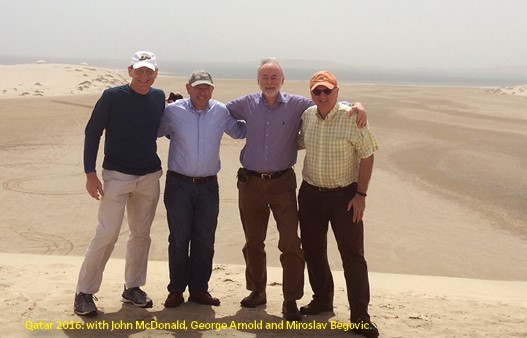
M.K.: It was a bit of a coincidence. After graduating with a Ph.D. Degree in 1980 I was offered an academic position at two universities in the US, but I decided to return to Sarajevo, and worked for Energoinvest Company’s Research Center for Automation on a development of the second-generation all-digital substation system. In 1986 I was offered a job to lead the production phase at the local protection equipment factory. That did not appeal to my interests, so I asked for a sabbatical leave and ended up at Texas A&M University by invitation from now an old friend Prof. Don Russell. I really liked to be back in academia doing research. As I was getting ready to return to Sarajevo, the political situation in the Balkans worsened and a war broke out in 1992 and we were forced to stay. So, by accident, I continued my academic carrier and stayed in the US.
PAC World: Why did you choose Texas A&M and what made you stay there for 35 years?

M.K.: Initially I did not think I would stay at Texas A&M for this long, but one thing led to another: I was promoted relatively quickly to a rank of Full Professor, and then I got substantial research funding from local utility companies and EPRI. It took almost a decade to develop new generation of simulators for relay testing, including developing the first real-time digital simulators for Western Area Power Administration in Golden, CO and ComEd in Chicago, IL. By that time our kids started school, and we were not ready to move them to new places away from their friends.
I was so much immersed in research, and we were accustomed to life in a small town that the desire to leave faded away. Texas A&M offered many opportunities not easily found elsewhere.
We busied ourselves by going on an extended sabbatical to France, Hong Kong, and Qatar, as well as on hundreds of international trips across six continents, turning College Station into a safe haven for rest and relaxation.
PAC World: You spent 35 years teaching at Texas A&M. Do you see any difference in the students in 1986 and today?
M.K: The major difference is in the motivation to spend time on searching additional information to supplement their formal education. It is a paradox of sorts that now when the students have more access to fast facts through Google and other mass media, they seem to be less inclined to search for detailed information, and instead take considerable time for social media. In the earlier days when the only way for researching a topic was through reading the books and articles from the library, students did seem to be more dedicated to coming to the library and searching through its resources.
PAC World: You have been involved in research on a wide range of topics. How do you explain your interest in so many topics and do you have a favorite?
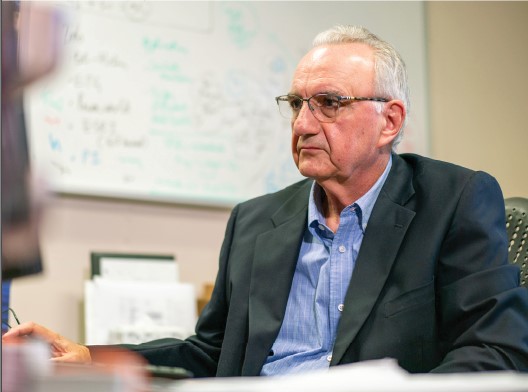
M.K.: My interest has always been driven by the ability to discover something new and interesting, and hopefully useful. I learned about protective relaying for the first time from an IBM Research article on the use of Walsh Transforms in digital relaying algorithms. My undergraduate major was control theory, so the protective relaying area was not my forte, but it did relate to the problems in control. As I started exploring it, I quickly realized how fascinating it is. As simple as fault analysis and protective relaying design may seem to an outsider, it intrigues me even today how difficult it is to make sure the faults are detected as early as possible and faulted parts removed from service as safely and as quickly as possible. I spent my entire professional career trying to address this problem from different angles: improvements in relay testing, automated analysis of faults and relay operations, digital algorithm design, and most recently an ability to predict faults based on machine learning.
In solving such problems, the need to use different theoretical and practical skills emerged, so my students and I explored them.
PAC World: After lecturing at universities all over the world, do you see differences in the students?
M.K.: In general, all young people I met were bright and inquisitive. However, there are cultural differences in their educational upbringing. Some are more independent learners than others, some have stronger fundamentals than their peers in other countries, and most of all their approach to problem solving may be different. Besides their cultural and educational differences, they are always unique personalities. Their desire to learn and courage to endure to succeed seem to be a common denominator, and it inspires me to help them achieve that goal.
PAC World: You have been actively involved in both IEEE and CIGRE. How do you see their role in our industry?
M.K.: The IEEE and CIGRE are somewhat different organizations, but with their large international membership they have a huge professional influence across the world. I joined IEEE in 1976 and CIGRE in 1980. Ever since I attended literally hundreds of conferences. I see them as complementing each other. Besides the dissemination of the knowledge through conferences and working groups, the IEEE’s role in developing industry standards, and CIGRE’s role in reaching out to the higher up management within industry are indispensable.
PAC World: What do you think about the importance of participation in working groups?
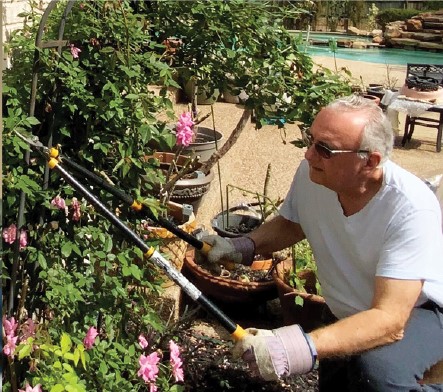
M.K.: Engaging with colleagues and friends to explore issues of common professional interest through WG efforts is really fun, and powerful beyond any other educational or professional experiences. Participating in dozens of working groups, and leading some over time has helped me understand the industry needs and shaped many of my research efforts. I would definitely strongly recommend faculty to connect with industry through such opportunities. And I would encourage professionals from industry to embrace the faculty that decide to pursue such engagements. The benefit will be mutual.
PAC World: What is the role of the different conferences around the world and why is it important for practicing engineers to participate in them?
M.K: The conferences, particularly the international ones, are a major driver in the professional world since they expedite dissemination of knowledge, create networking and move the profession forward. However, there is a visible inflation of quality due to too many conferences about power systems around the world. While it is hard to have a model where the conferences can guarantee high quality, the COVID pandemic has introduced an interesting paradigm of using virtual or hybrid means to holding them. This may actually make it easier for the prospective attendees to make choices since there are no travel commitments or expenses involved. Conferences that build reputation with high quality programs will win in such a competitive situation.
PAC World: What are the benefits of academics working with the industry?
M.K.: Academics are educating the next generation of the workforce. Anything that they can convey to the future engineers that can connect the fundamentals taught at the universities to the ability to solve practical problems will help their future careers and employers. At the same time faculty may learn more about practical problems in the industry, which may make them more competitive in attracting research funds for solving them and helping the industry move forward.
PAC World: What do you think is the impact of IEC 61850 on the digitization of the grid and the future of protection and control?
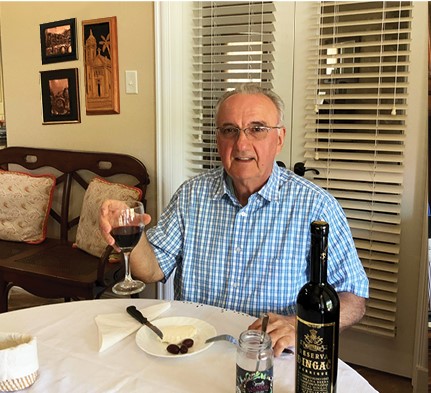
M.K.: The idea of the common communication standard has been born as early as the late seventies when the all-digital substation systems were proposed and developed. Over time, as the old generation of the substation equipment is phased out, the IEC 61850 solutions may prevail. To make such system solutions survive and thrive, many other developments need to happen: we need a new definition of SCADA systems that will embraces IEC 61850 devices as distributed Remote Terminal Units, all being capable of synchronously sampling and transmitting data in real time to the control center. A new generation and paradigm for Energy, Market and Advanced Distribution Management Systems are needed to be able to reap full benefits of IEC61850. And this extends to the future Distributed Energy Resource Management Systems, Renewable Generation Management Systems, and Building Energy Management Systems.
PAC World: Do you believe that we are going to see more artificial intelligence applications in our industry?
M.K.: Absolutely. The industry has reached a point where it isn’t efficient or even feasible to solve complex problems and process huge amounts of data to make decisions. The help of artificial intelligence, machine learning, big data analytics, and high-performance computing is badly needed. Trying to introduce such methods gradually to achieve incremental improvements is not going to be very productive. Only by attacking the most visible problems and demonstrating that new approaches are affective in solving them, the industry will be able to justify the major investments needed to get such techniques deployed and staff trained.
PAC World: Do you think it is possible to prevent wide area disturbances and blackouts?
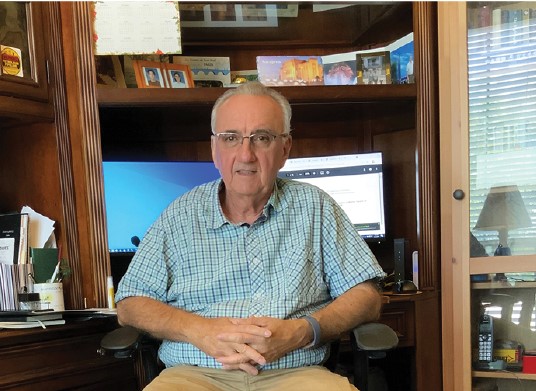
M.K.: I am not sure how much they can be prevented, but certainly they can be predicted. Once predicted, mitigation measures can be deployed to significantly reduce their impact. This requires implementation of a new paradigm of predicting the risk of such events happening with full consideration of both physical, data and behavioral models, and then defining optimization approaches to minimizing the risk through proper mitigation measures.
PAC World: How do you see the future of our industry?
M.K.: I think the future is bright because we have a chance to redesign the power system, but I also think the future is somewhat uncertain. I hope all segments of the industry will see that the future requires changes in the mindset regarding the obligation to serve where a customer (consumer) becomes a partner in finding the best solutions to achieve the environmental goals while assuring an uninterrupted power supply.

PAC World: You are still actively involved in teaching, IEEE and CIGRE, conferences, consulting and innovation. What keeps you going?
M.K.: What keeps me going is what sparked my interest when I started at an early stage: curiosity. I am as excited about new discoveries now as I was when I started my career, if not even more. And the reason is because with the years and maturity, one gets to see the problems with deeper understanding of the correlations and causalities. This leads to clearer formulation of problems and the approaches to tackle them. I feel that I am more productive in defining new ideas and solutions.
PAC World: What is the greatest challenge you faced during your professional career?
M.K.: As many others would probably agree, it is making a balance between professional pursuits and family responsibilities. In my case, I had very strong support from my wife who abandoned her successful professional carrier and stayed at home raising our kids while I was quite often away traveling or working in the office long hours. The professional work was never something that I considered a challenge in a negative sense. It was something that I loved because it nurtured my skills, imagination and intellectual interests, so the more challenges I was facing, the more productive I became.
PAC World: What do you consider your greatest professional achievement?
M.K.: While it is hard to decide based on my many kinds of achievements, it is always the most important to me that I contributed to the profession in practical ways by developing a few new solutions, and I helped many young students to lend a successful carrier and perhaps become more curious than I am. I consider my greatest professional achievement advising over 60 Master’s and Ph.D. students and perhaps inspiring over 10,000 souls that according to Google Scholar read my papers to pursue new discoveries, and many more that attended my lectures worldwide.
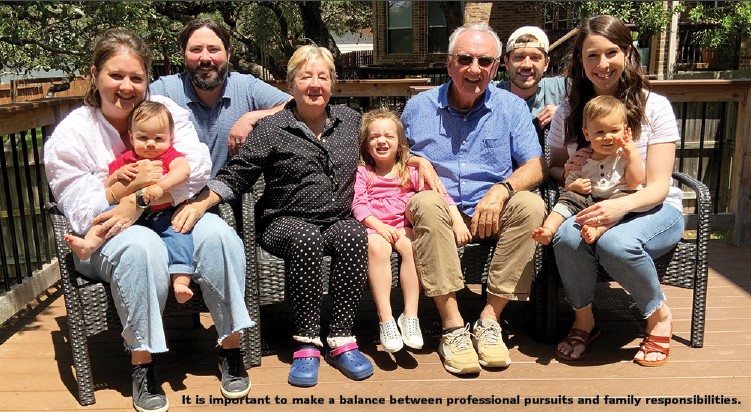
PAC World: You have received many awards. Which one do you consider the most important to you?
M.K.: With the awards, it is really not about a particular award as much as it is about the group that recognized my contribution and I had a privilege to work with. From my University, I was very proud to have received a Regents Professor recognition, and from IEEE the Life Fellow status, and from CIGRE the Fellow, Honorary and Distinguished member recognitions. To me, the awards are a great way to remember different stages in our life and people that helped us to achieve the recognitions.
PAC World: How do you balance your active professional life with your family life?
M.K.: Oddly enough, due to the pandemic, it is a bit easier now since I am at home all the time. Otherwise, since the kids have gone and formed their own families, my wife and I tend to travel together to most of the longer international trips, so it makes the professional and private life much easier to balance now.
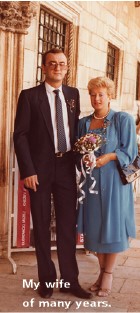
PAC World: What do you consider your greatest personal achievement?
M.K.: An ability to navigate through a rather complicated, and sometimes adverse, world. Surviving and learning how to move forward despite many setbacks is what I consider my greatest personal achievements. And this covers broadly, not just my own skills and emotional strengths, but also my relationships with my close family and friends. I still maintain the strongest friendship with many of my classmates.
PAC World: What do you like to do when you are not working?
M.K.: Spending time with family and particular the three grandkids as much as it is feasible under the circumstances of isolation caused by COVID 19 is the first priority of an activity not tied to work. However, I do like to work. It just gives me a chance to keep abreast of what is happening around us and to satisfy my curiosity, and then go to bed happy. And I can get to that state not by just working on technical issues, but also by working in the yard, or reading books.
PAC World: You travel a lot all over the world. Do you have a favorite place?
M.K.: I have been asked this question many times, and I always come to the same answer: each place is unique, and it has its unparalleled beauties in people, scenery, food, customs, etc. So, I will give seemingly a frivolous answer: the world is my favorite place.
PAC World: Do you have favorite music?
M.K.: It depends on the mood, company and surrounding. Every morning I go out for a long walk and listen to the oldies from the seventies. I also love classical music, Portuguese Fado, Mexican Mariachi music, and the old Bosnian ballads called “sevdalinke”.
PAC World: Your favorite form of entertainment?
M.K.: I do not spend much time in front of the TV, and very seldom do I go to the movie theater, but when I have a chance, I do like to watch western cowboy movies, and historical WWII and nature documentaries. I love to watch soccer and basketball games and skiing events. As often as we can, we go to Mexico to explore its cultural and historical treasures and enjoy our second home in San Miguel de Allende.
PAC World: What is your favorite food?
M.K.: Simple “biblical” food from the Mediterranean region is my favorite: bred, olives, feta cheese, prosciutto and of course wine, which may not be considered food but simply is an inseparable part of my favorite meals. Growing up in a mountainous region, potato is my staple food. I love fruits, and I learned to enjoy an abundance of it in the region I came from, so I can never have enough fresh fruits and berries.
PAC World: Do you have a motto?
M.K.: “Fear no fear” meaning one should not be afraid of any new discoveries or challenges.
PAC World: Is there anything you would like to say to the young PAC engineers around the world?
M.K.: Be excited. The world of power systems and all related disciplines is blossoming. We are enjoying the transformation as we speak even though it is just a beginning and will be going through the next generation of discoveries we have never seen before. This century will be the century of rediscovering and reinventing the electricity grid again.
Biography:
Mladen Kezunovic received B.Sc. from University of Sarajevo, Bosnia, and M.Sc. and Ph.D. degrees in electrical engineering from University of Kansas, USA in 1974, 1977, and 1980, respectively. He has been with Texas A&M University, USA since 1986 where he is Regents Professor, Eugene E. Webb Professor, and Site Director of “Power Engineering Research Center” consortium. He is also the Principal of XpertPower Associates, a consulting firm specializing in power systems data analytics. His expertise is in protective relaying, automated power system disturbance analysis, computational intelligence, data analytics, and smart grids. He has published over 600 papers, given over 120 seminars, invited lectures, and short courses, and consulted for over 50 companies worldwide. Dr. Kezunovic is IEEE Life Fellow, CIGRE Fellow, Honorary and Distinguished Member, and Registered Professional Engineer in Texas.



